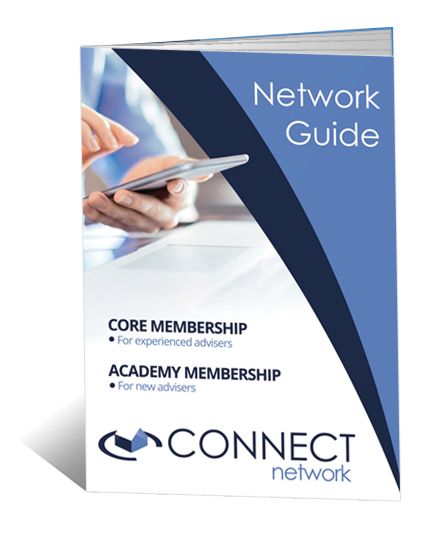Most people take out a mortgage to cover the cost of a home purchase. However, viewing this as an ongoing financial agreement rather than a one-off decision is essential. Mortgage terms often last between two and five years, after which conditions may change, leading to higher monthly repayments. Consequently, many homeowners periodically seek a new mortgage deal to maintain affordable repayments. This process is known as remortgaging.
Reasons to Remortgage
Although a full mortgage term can span 20 to 25 years, most fixed-term mortgage deals only last between two and five years. Some lenders also offer 10-year deals. Your mortgage typically switches to the lender’s standard variable rate (SVR) when the fixed term ends. This rate is often higher and less predictable.
Many homeowners consider remortgaging for several reasons. Firstly, their current deal may be about to end, which could lead to higher repayments on the SVR. Secondly, improving personal circumstances might allow access to more competitive deals. Furthermore, homeowners may secure better rates if the property value has increased significantly. Others might prefer to switch to a fixed or flexible mortgage, allowing for additional repayments or even payment holidays. Additionally, some borrowers remortgage to release equity and fund renovations or other major expenses.
Costs of Remortgaging
Remortgaging costs depend on several factors, including the current mortgage terms and available offers. Some lenders impose arrangement fees, while others keep upfront costs lower. A key cost to consider is the early repayment charge, also known as a redemption penalty, which can be up to 5% of the mortgage balance. This charge differs from smaller exit fees, which are typically fixed.
It is crucial to review these costs carefully, as penalties may apply even after the fixed-term period ends. For example, a two-year fixed rate may still incur penalties for leaving within three years. Consulting a mortgage adviser ensures you understand these terms in advance. They can also recommend ways to minimise costs if remortgaging is worthwhile.
Is Remortgaging Right for You?
Even if your current deal is ending, remortgaging might not always be the best option. For example, those with smaller loan balances, such as £50,000 or less, may find switching fees outweigh any savings. Similarly, large redemption penalties can make staying with the current mortgage more economical. Some lenders may also allow you to switch to another deal within their offerings at a reduced charge.
Homeowners with a high loan-to-value (LTV) ratio, such as 90%, may face difficulty finding better rates elsewhere. Changes in personal circumstances, like reduced income, could also make it challenging to secure an improved deal. Additionally, borrowing against your property may not always be the cheapest solution, particularly if it extends payments over a longer period. In such cases, discussing your options with a financial expert is advisable.
How to Remortgage
Consulting an independent mortgage adviser can simplify the remortgaging process. These experts assess your current deal and explore better options. Furthermore, they examine your finances to ensure the new mortgage suits your needs. Advisers also provide insights into hidden fees or penalties, enabling smarter decisions.
Switching mortgages may save money by securing a lower interest rate. Additionally, it can help consolidate debts or release equity for home improvements. Before applying, you must check your credit score, as lenders use it to determine eligibility.
Key Steps in the Remortgaging Process
Early repayment charges could apply if you switch before your fixed-term ends. Therefore, reviewing your existing agreement helps avoid unexpected costs. Timing your remortgage to coincide with the end of your deal prevents unnecessary fees.
Gathering necessary documents speeds up the process. Lenders typically require proof of income, recent payslips, bank statements, and identification. Self-employed applicants may need tax returns and accounts covering the last two years.
In some cases, property valuations impact your mortgage terms. An increased value may lead to better deals, whereas a lower valuation could limit options. Therefore, monitoring property prices can guide decisions.
Seeking a Mortgage Adviser
Comparing fixed-rate, variable, and tracker mortgages helps identify the right product. Fixed-rate deals offer payment stability, while variable rates may reduce costs if interest rates drop. However, tracker mortgages directly follow the Bank of England base rate.
Using mortgage comparison tools provides insights into rates and terms from various lenders. Nevertheless, speaking with a broker often uncovers exclusive deals not listed online. Brokers also handle paperwork, reducing stress during the process.
Securing a decision in principle speeds up the formal application. It demonstrates affordability, which strengthens your position with sellers and estate agents. Yet, final approval depends on a detailed review of your finances.
Review fees associated with switching, such as arrangement, valuation, and legal charges. Some lenders offer incentives like free valuations or legal support, reducing upfront costs. However, always check terms carefully to avoid surprises later.
Finally, ongoing financial reviews ensure long-term savings. Regularly checking rates helps identify opportunities to remortgage again if market conditions improve.
Why Choose Connect Experts?
Finding the best remortgage deal at the right moment can help save thousands over the years. Therefore, working with experienced professionals is crucial. Connect Experts offer personalised advice to meet individual needs and circumstances.
They provide access to brokers based on gender, location, language, and expertise. This ensures clients find someone they feel comfortable working with. Additionally, their support helps streamline the remortgage process while reducing stress.
Connect Experts simplify mortgage decisions for those seeking clarity by offering clear, practical solutions. Their team evaluates deals to match personal goals and financial situations. Consequently, clients make informed decisions about mortgage options.
Expert advisers analyse the market and present suitable solutions. As a result, clients save time and avoid unnecessary costs. Their service also caters to both first-time buyers and experienced property owners. Therefore, clients receive assistance regardless of their experience.
Furthermore, Connect Experts provide ongoing support throughout the process. This commitment ensures customers remain confident in their decisions. As the mortgage market evolves, their advisers keep up with changes to offer the most relevant advice.
In conclusion, Connect Experts deliver tailored guidance to help secure the most suitable deals. Whether you need a fixed-rate mortgage or flexible terms, their team assists every step of the way. Contact Connect Experts today to learn more about their services.
Thank you for reading our “What is Remortgaging? | Connect Experts Explain ” Stay “Connect“-ed for more updates soon!




